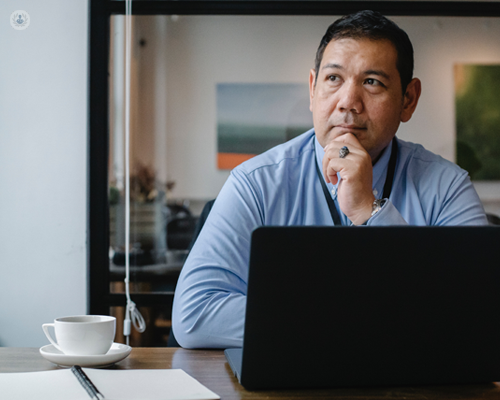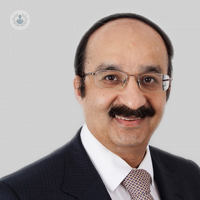What are colonic polyps?
Written by:We speak to leading consultant gastroenterologist Dr Sameer Zar to find out exactly what colonic polyps are, how they form and what can happen in the event they are left untreated.

What exactly are colonic polyps?
Colonic polyps are small growths which develop on the lining of the colon or large bowel. These lesions are precursors to colonic cancers.
How do they form?
There are various dietary and genetic reasons for colonic polyps to form. We do know that these cancers tend to develop in patients that live with obesity and eat animal fats.
However, they can also grow sporadically. Colon cancer is one of most common cancers which exists and there is a huge morbidity and mortality related to these cancers.
How are they treated? Is surgery every required to get rid of or treat colonic polyps?
Colonic polyps are precursor lesions of colonic cancer. They take several years to develop into an invasive cancer. These polyps can be detected early on and they can be removed endoscopically. Most societies recommend that patients who have polyps in colonoscopies should have them removed. If these polyps are removed earlier on, surgery can be avoided.
However, some patients have large, complex polyps which can require either a specialised endoscopic procedure such as endoscopic submucosal dissection (ESD) to remove them completely. In some instances, they may require surgery to remove them completely.
How can colonic polyps affect one's quality of life?
Most colonic polyps are asymptomatic; they don't cause any symptoms. Occasionally the patients may present with rectal bleeding or anaemia.
It's only when the colonic polyps turn into advanced cancers that the patients may present with anaemia, weight loss or sometimes symptoms of bowel obstruction.
What can happen if they are left untreated?
Colonic polyps are precancerous lesions. However, they can take several years to transform into cancer. It's important that when a colonic polyp is found in a colonoscopy that it's adequately removed.
This requires some degree of expertise on part of the person performing the colonoscopy. It's also important that the sample that's removed should be evaluated histologically (microscopically).
Certain patients have genetic problems which can predispose them to recurrent polyps. Patients who have family history of colon cancers should be more vigorously investigated and may require screening colonoscopies after the polyps have been removed.
If you're concerned you may have colonic polyps, or are simply worried about the current state of your bowel or any other gastrointestinal issues, make sure you consult with Dr Zar via his Top Doctors profile.


